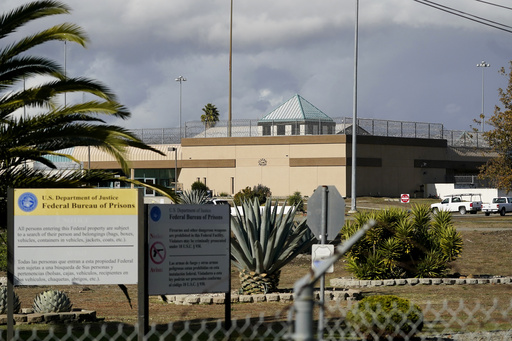The federal Bureau of Prisons has announced a decisive action plan that includes permanently closing its controversial women’s prison, often referred to as the “rape club,” located in Dublin, California. Along with this closure, six additional minimum-security facilities in states like Wisconsin, Minnesota, Colorado, Pennsylvania, West Virginia, and Florida will also suspend operations. This realignment comes after persistent issues of abuse, degradation, and mismanagement within these facilities.
In a communication distributed to employees and Congress, the Bureau indicated that these closures are in response to numerous challenges, including a critical shortage of staff, deteriorating infrastructure, and constrained budget resources. The agency reassured its commitment to relocating all affected employees to other prisons, emphasizing that it is not downsizing but reorganizing for efficiency.
These closures are a significant development in the Biden administration’s management of the Justice Department’s largest agency. After many promises aimed at reforming troubled institutions like FCI Dublin, Bureau of Prisons Director Colette Peters is now turning towards consolidation, citing financial burdens associated with renovating outdated facilities and insufficient staffing levels.
The decision to permanently shut down FCI Dublin, following a temporary closure seven months earlier due to severe staff-on-inmate abuse incidents, underscores the Bureau’s struggle to rectify the environment within its most problematic facilities. This institution, having been grappling with leadership and operational issues, now joins the likes of a New York jail previously closed due to similar complaints regarding security and living conditions after the high-profile case involving Jeffrey Epstein.
Despite these closures, the Bureau of Prisons has announced plans to build a new medium-security prison and an accompanying minimum-security camp in Roxana, Kentucky, to accommodate around 1,400 inmates. This project is backed by $500 million in congressional funding aimed at creating “modern facilities and infrastructure.”
Recently, both the Bureau of Prisons and the correctional workers union have emphasized the urgent need for increased federal funding, citing low compensation, challenges in retaining staff, and a significant repair backlog that totals in the billions. Many facilities were constructed before the early 1990s and are becoming outdated and incapable of meeting modern correctional standards.
Employee reassignment to the remaining facilities is expected to enhance retention rates and reduce the reliance on mandatory overtime. This practice entails various staff, including cooks and nurses, being obligated to perform duties typically assigned to correctional officers.
Following an infrastructure assessment after the April closures, the agency officially confirmed FCI Dublin’s fate, having determined that extensive repairs are necessary to consider reopening the facility, coupled with staffing issues stemming from high living costs in the Bay Area. The Bureau indicated that the harsh budget and staffing conditions have prompted this difficult decision.
The closure of FCI Dublin signifies an important recognition of the Bureau’s inability to address severe cultural issues within the facility, which was highlighted in previous investigations revealing extensive sexual abuse allegations. Several former inmates are currently pursuing legal action against the agency for reforms and compensation regarding their experiences.
The ongoing reforms in the federal prison system coincide with a wider investigation that has uncovered serious hidden problems within the Bureau, including rampant criminal behavior among employees, numerous escapes, and chronic violence, which have severely hindered the agency’s ability to respond to emergencies appropriately.
In July, legislation aimed at strengthening oversight of the Bureau was signed into law following revelations about systemic issues within the agency.
In addition to FCI Dublin, the Bureau is closing minimum-security facilities in locations like Pensacola, Florida, Duluth, Minnesota, and Morgantown, West Virginia. Operations at minimum-security satellite camps adjacent to federal prisons in locations such as Oxford, Wisconsin, Littleton, Colorado, and Loretto, Pennsylvania, are also being discontinued.
These lower-risk facilities often experience significant challenges, including escapes and drug trafficking issues. The Pensacola camp buildings, owned by the Navy, are set to be demolished due to their deteriorating condition, with approximately 500 inmates and 100 staff members moving to alternative locations.
The Duluth facility faces similar issues, with condemned buildings containing hazardous materials like asbestos and lead paint. About 736 inmates and 90 staff members are slated for relocation. The Morgantown facility will also close, relocating around 400 inmates and 150 employees to improve resource allocation within the federal prison complex in Hazelton, West Virginia.
Employees from the idled satellite camps are being reassigned to nearby low-security prisons while inmates are being redistributed. The agency previously cleared out the camp at FCI Oxford in Wisconsin, and cited infrastructure concerns as a reason for the moves, including a staggering estimated cost of $26 million for repairs needed at the FCI Englewood camp in Littleton, Colorado.
